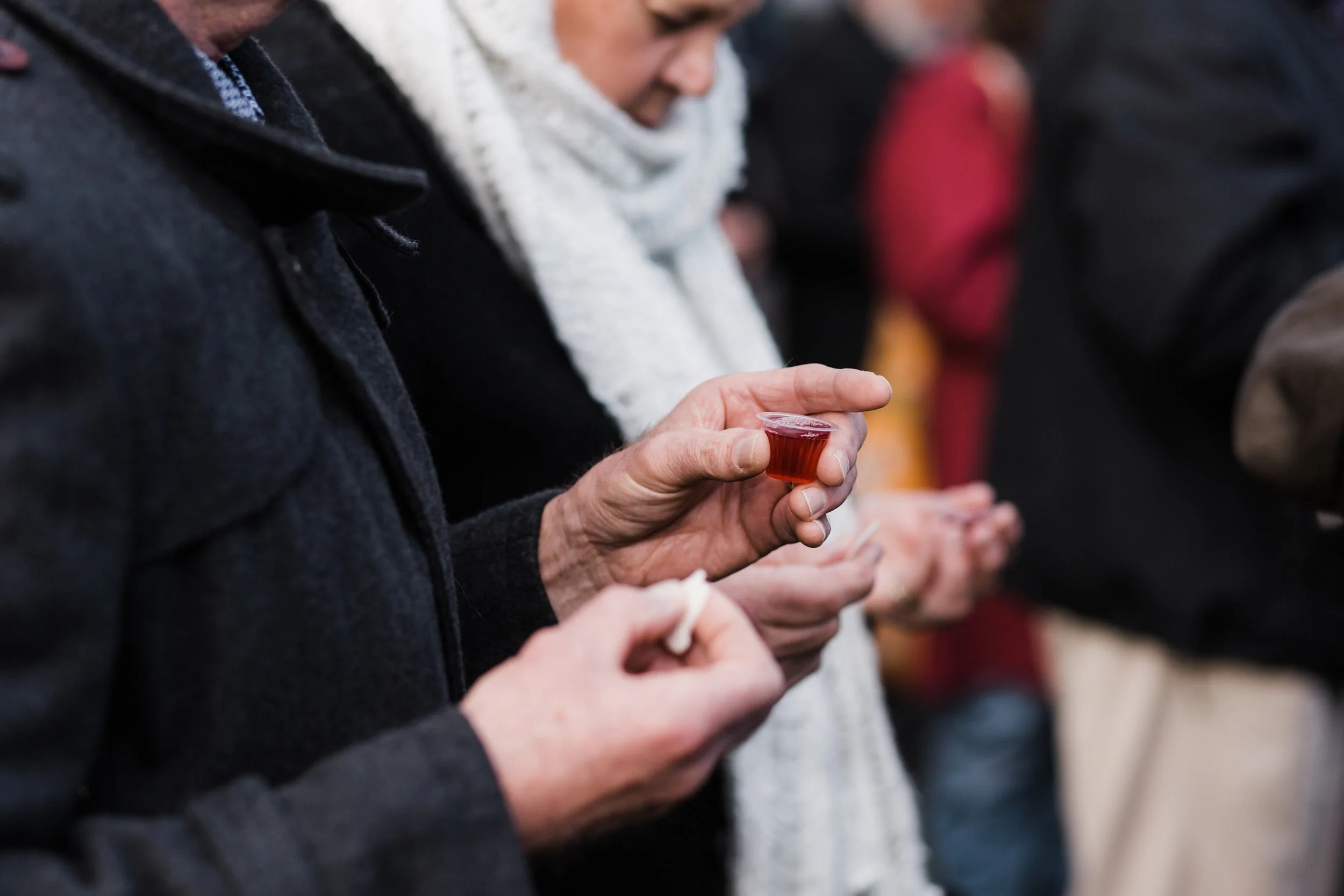The fledgling Corinthian church was in strife. The apostle Paul is deeply concerned for the new disciples there who had come from all walks of life. The social and cultural diversity was immense. Certain unhealthy behaviours had begun to emerge and people were being excluded, embarrassed and even worse – especially when the Lord’s Supper was being conducted. Basically, the Lord’s Supper had become a rowdy party where people were even becoming drunk. The extravagance of some at these “love feasts” (where each brought their own bread, wine and other goodies) was in stark contrast with those who could barely afford anything. Division was occurring in the church and, in of all places, it was occurring in worship during the Lord’s Supper – the very place where our unity as Christians should be at its richest, deepest and purest and most celebrated.
And so, the apostle writes …
1 Corinthians 11:28-29 (NIV)
“Everyone ought to examine themselves before they eat of the bread and drink from the cup. 29 For those who eat and drink without discerning the body of Christ eat and drink judgment on themselves.”
There are a few things going on here, but I want to focus on just one phrase: “discerning the body of Christ”. Some churches teach the apostle is making rules for handling the actual elements used in communion – the bread and the wine. But this is not Paul’s point at all. He is about give his great illustration of the body of Christ – which is the Church (1 Cor. 12). Indeed, one of the reasons he mentions the body of Christ – and all the parts working harmoniously together – was to emphasise the absolutely critical nature of the loving unity of the people of God. In 1 Cor. 12 Paul describes the functioning of the church as a living body. It is a precious spiritual organism.
So, this phrase: “discerning the body of Christ”. It is not about the mechanics of how the Lord’s Supper is conducted, or what material elements are used in it, but how we participate in it as a unified people who are joined to Christ.
The issue Paul addresses was that the behaviour, during Lord’s Supper, of many people was shocking and lacked any sense of what it means to properly respect the other believers who also formed the body of Christ. They had no awareness of the effect of their rude and selfish behaviour and carnality – and other parts of the body of Christ were being hurt. The church was losing enormous functioning power in its mission. Paul pinpoints the Lord’s Supper, the very place in worship where our unity should be at its absolute best, as the place where it was weakest and worst – and he rebukes and corrects the church. He calls on them to properly discern the body of Christ. That is, take proper, loving care to be sensitively aware of the effect of any one of our behaviours, words and attitudes that would cause another brother or sister to have stumbled, feel excluded or second class.
There is no place for this in the church. Not anywhere, any time.
To “discern” the body of Christ then, is to examine myself and my effect on the loving, harmonious unity that makes the church what it needs to be. The apostle rebukes and admonishes that such discernment is a rigorous self-examination in the first instance that considers others first.
1 Corinthians 11:26-29 (NIV)
“For whenever you eat this bread and drink this cup, you proclaim the Lord's death until He comes. 27 So then, whoever eats the bread or drinks the cup of the Lord in an unworthy manner will be guilty of sinning against the body and blood of the Lord. 28 Everyone ought to examine themselves before they eat of the bread and drink from the cup. 29 For those who eat and drink without discerning the body of Christ eat and drink judgment on themselves.”
To participate in the Lord’s Supper without proper regard for the way we have impacted others, leaving things unresolved, harbouring anger and unforgiveness, continuing to gossip and reporting poorly of others, causes division and is directly trashing the actual sacrifice of Jesus on the cross whose blood pays for our sins. Before we participate in the Lord’s Supper – every time we do – we need to carefully check our hearts and not only get rid of any sin we are entertaining, but put right any damage we have done, or unforgiveness we are harbouring against another.
This unity of the people of God is just so holy and sacred to God and to all of us.
Psalms 133:1-3
“How good and pleasant it is when God's people live together in unity! …. 3 For there [in that place of unity] the LORD bestows fresh, new blessing, even life forevermore.”
Think on these things …
Ps Milton

